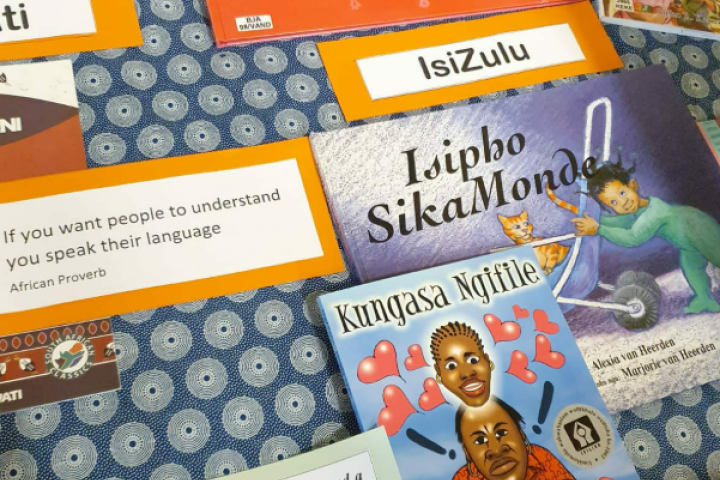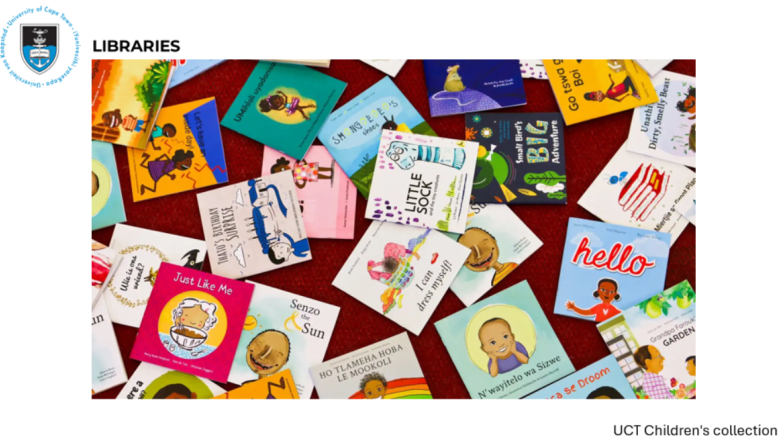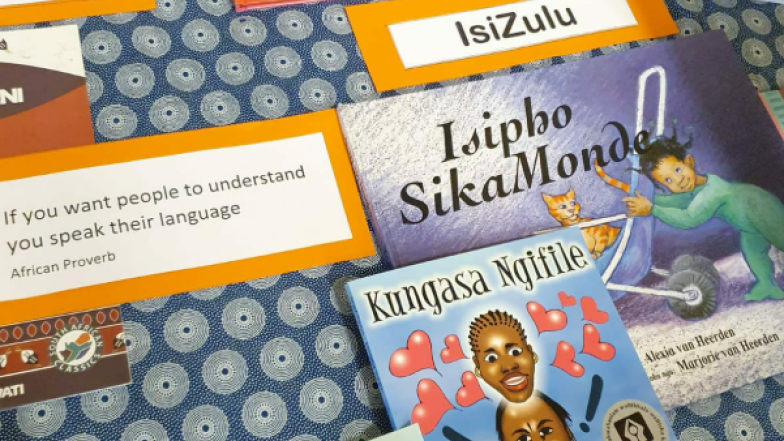Reading Our World: Literacy in a Digital Age

International Literacy Day 2025, observed on 8 September, is celebrated under the theme “Promoting Literacy in the Digital Era.” In a world where technology increasingly shapes how we live, learn, and connect, literacy has grown beyond its traditional definition. It now includes the ability to access, evaluate, create, and communicate through digital platforms—safely, ethically, and critically.

At UCT Libraries, we recognise this expanded definition of literacy and its potential to empower individuals and communities. Through our Children’s Literature Collection in the Rare Books Division of Special Collections, we not only support traditional literacy and storytelling in South African indigenous languages, but also promote digital literacy by making these stories more accessible.
Why digital literacy matters
The digital age offers powerful tools for learning—but it also deepens inequalities for those who lack access or skills. According to UNESCO, 739 million youth and adults lack basic literacy skills. Without digital access and literacy, they risk double marginalisation: excluded from both traditional education and the benefits of the digital world.
Digital literacy is not just about using devices—it’s about thinking critically, understanding information ethics, identifying credible sources, and making informed choices. It’s also about preserving culture and language in digital formats and creating space for diverse stories in online environments.
UCT Libraries: heritage in the digital space
Our Children’s Literature Collection, developed with a strong focus on multilingual, local storytelling, plays a vital role in bridging the analogue and digital worlds. Originally started through annual donations from the Children’s Book Forum of the Western Cape, the collection now includes a wide range of titles in isiXhosa, isiZulu, Setswana, Sesotho, and other South African languages. These books celebrate local authors, folklore, moral storytelling, and social issues—from anti-bullying and environmental responsibility to self-love and community values. Our traditional book displays have evolved to include digital exhibitions and virtual walkthroughs, allowing broader and more inclusive engagement.

We are now working to digitise selections from this collection, supporting open access and expanding availability to students and educators online.
Learning from stories, connecting through screens
Digital transformation doesn’t mean replacing print with pixels—it means expanding our literacy ecosystem to include both. At UCT Libraries, we celebrate authors like:
- Sindiwe Magona, who inspires racial equity across multiple languages,
- Gcina Mhlophe, who brings oral tradition into classrooms and digital platforms,
- Niki Daly and Wendy Maartens, whose stories of courage and imagination resonate across generations,
- Mylo Freeman, whose books affirm identity and diversity,
- Thembinkosi Kohli and Isaacs Graham, who address contemporary issues in engaging, accessible ways.
These stories don’t just belong on shelves—they belong in classrooms, homes, devices, and digital spaces where children learn and grow.

The way forward: critical, connected, and inclusive
As we navigate the digital era, UCT Libraries remains committed to preserving South African heritage, promoting multilingualism, and equipping users with the tools to read, think, and engage in a complex world.